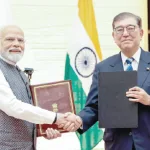Mastering a subject is not just about obtaining a certificate or a degree; it is a journey of dedication, growth, and excellence. In a world that often measures progress by titles and tenure, true expertise demands more than just a formal qualification. The disparity between authentic mastery and the shortcuts taken to gain qualifications becomes especially clear in cases of promotions in various sectors, such as education.
Consider cases where individuals acquire science degrees through distance learning, often with the sole intent of climbing the promotional ladder. Here, seniority based on the date of appointment can sometimes override genuine subject expertise. A 2005 postgraduate, who may have committed years to mastering a subject, can be passed over for promotion by a 2024 graduate who was appointed earlier. This approach may satisfy the requirements on paper, but does it truly serve the purpose of cultivating and rewarding expertise? Is this kind of advancement genuine?
As Bruce Lee famously said, “I fear not the man who has practiced 10,000 kicks once, but I fear the man who has practiced one kick 10,000 times.” The same principle applies here: deep mastery takes time, effort, and continual practice—qualities that go beyond a formal qualification. When promotions are granted based on appointment date alone, it risks undervaluing the time and dedication required to genuinely master a subject.
True progress in education lies not in tenure, but in the mastery and passion educators bring to each generation. In the educational sector, where knowledge and skill directly impact young minds, the difference between “having a degree” and “having mastery” becomes starkly relevant. A teacher who has spent years refining their understanding of a subject, developing their ability to engage students, and continuously learning brings much more to the classroom than someone who has only recently acquired a degree with limited engagement in the field.
As Albert Einstein said, “Education is not the learning of facts, but the training of the mind to think.” If the promotion process overlooks the quality of understanding and skills and simply prioritizes tenure or recent qualifications, it undermines the very foundation of what education represents. Mastery, much like a degree, should be measured not just by paper but by the depth of one’s knowledge, experience, and commitment to continuous improvement.
Moreover, awarding promotions based on the date of obtaining a degree, rather than the date of appointment, aligns with rewarding true dedication. Someone who earns their degree earlier has had more time to integrate knowledge and refine their skills, making them a better fit for advancement.
The quality of education is inextricably linked to the depth of expertise that educators bring to their roles. When promotions are determined solely by seniority or recent qualifications, often obtained through minimal engagement, the education sector suffers as a whole. Candidates with higher qualifications—PhD, M.Phil, NET, SET, or JRF certifications—who have rigorously pursued subject mastery through extensive research and teaching methodologies are frequently overlooked. This not only demotivates highly qualified professionals but also denies students the chance to learn from those with a deeper understanding of their subjects.
In a region like J&K, where quality education is vulnerable and often at stake, the need for skilled, dedicated teachers is paramount. When experienced and truly dedicated educators are given the opportunity to advance, students gain mentors who embody the values of intellectual curiosity and lifelong learning, ultimately benefiting society.
Mastering a skill, in many ways mirrors the journey of education itself. Both require perseverance, humility, and the recognition that genuine progress takes time. As Aristotle noted, “We are what we repeatedly do. Excellence, then, is not an act, but a habit.” Just as skill mastery is marked by constant effort, so too should promotions and rewards in education honor those who have truly excelled over time, not just those who meet minimal qualifications on paper.
Conclusion
There is an undeniable value in treating the acquisition of skills with the same reverence as earning a degree. When it comes to promotions, especially in fields that shape future generations, the focus should shift towards genuine expertise, continuous growth, and dedication. For subject-specific promotions, the date of passing a degree should be considered rather than the date of first appointment in the department.
A teacher is promoted and recognized as a master after serving for a decade or more, demonstrating consistent performance and mastery. In such cases, seniority based on appointment date is the true determining factor; however, in cases of subject- specific domain, instead, subject expertise and dedication should take precedence. Policymakers must recognize this imbalance and work toward a promotion system that values genuine mastery and aligns with the principles set forth in the National Education Policy (NEP) 2020.
NEP 2020 emphasizes the need for an education system rooted in quality, equity, and excellence, with a focus on nurturing educators as key drivers of these goals. Mastery of a subject should be proven through rigorous testing and demonstrated expertise.
To uphold these ideals, administrations should consider implementing promotion criteria that prioritize subject-specific expertise, not merely tenure. This could involve evaluating educators based on their qualifications, years of focused study, and their contributions to the field, while providing incentives for continuous professional development.
By doing so, educational institutions can ensure that the most capable, passionate, and well-prepared teachers hold positions of influence, thus fostering an environment where quality education flourishes for the benefit of future generations.
(Author is a Research Scholar. Feedback: [email protected])








